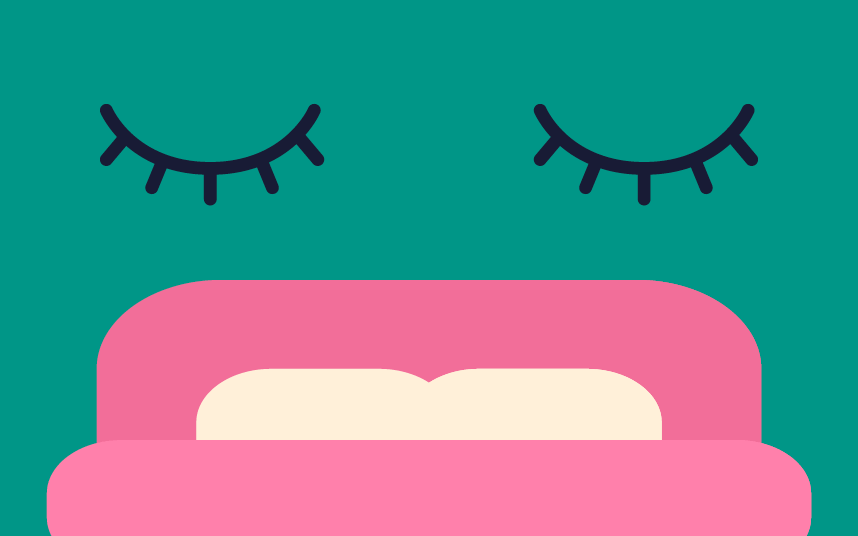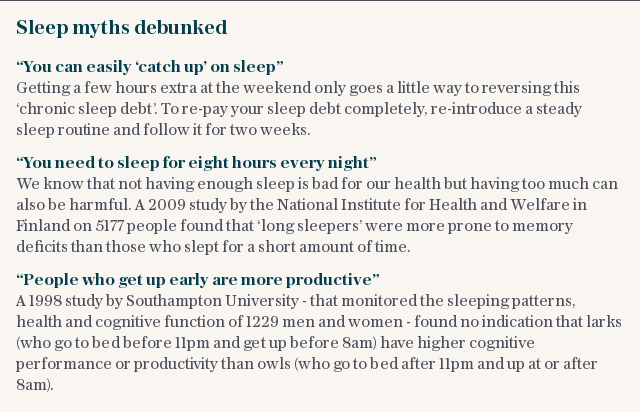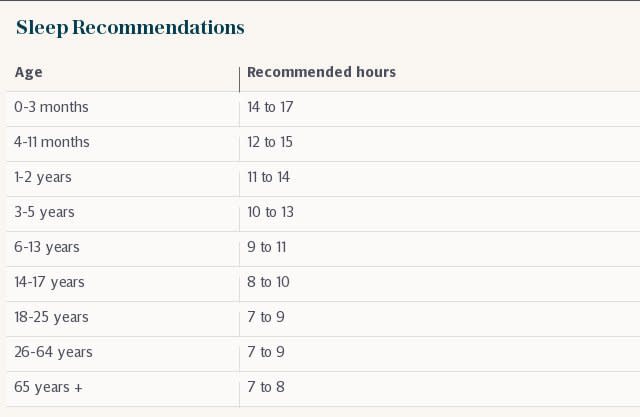How much sleep should I get?

Eat, sleep, repeat. Getting shut eye is a fundamental element of our daily routine. But how many of us know why we actually need sleep? Or how many hours sleep we really need? Or just how important it is?
According to new research, sleep has a stronger association with a person's wellbeing than almost anything else in their lives.
Polling carried out by the National Centre for Social Research, found that the most rested people score 15 points higher on the happiness index than those who struggled with their sleep. However, increasing household income from £12,500 to £50,000 results in an increase of just two points.

This news may or may not come as a surprise. As a society, we're obsessed with the amount of sleep we get (or don't get, depending on your viewpoint), and anyone who has experienced sleep deprivation will know from first hand experience that sleep really is essential to wellbeing.
Dr Guy Meadows, Clinical Director of The Sleep School – an organisation that helps insomniacs, stressed workers and new parents – has dedicated his career to helping people sleep better, naturally. “A good night's sleep is responsible for our mental, emotional and physical wellbeing” he says.
Why is sleep so important?
To maintain a healthy weight
Poor sleep disrupts the appetite and satiety hormones Leptin and Ghrelin, causing us to crave more sugary food, eat more and gain weight.
To strengthen your immune system
Regularly sleeping less than 6 hours sleep per night increases our risk of catching the common cold by 4.5 times, as well as increasing the time taken to recover.
For a healthy heart
Poor sleep is associated with an increased risk of stroke and heart attacks. The reasons for this include an increased risk of high blood pressure, elevated blood inflammatory markers and poor dietary and lifestyle factors.
Balanced blood sugar
Poor sleep increases our blood sugar levels, similar to that seen in diabetes. Poor sleep appears to alter the function of insulin, leading to an insulin resistance type effect resulting in high blood sugar.
For skin health
Sleep plays a vital role in the repair and regeneration of all cells including skin cells. Sleep deprivation reduces the time available for skin repair, as well as increasing the stress hormone cortisol accelerating cell aging.
Sleep impacts your judgement to take risks
Initial sleep research suggests that sleep deprivation makes us more likely to expect a positive outcome causing us to take greater risks.
It affects your mental ill health
A bidirectional relationship exists between poor sleep and poor mental health. It is well documented that poor sleep is a symptom of depression and anxiety. However, research also suggests that persistent insomnia can increase an individual’s risk of depression and anxiety occurring or recurring.
Cognitive performance
Five days of poor sleep (e.g. 6 hours versus 8 hours) is reported to have the same negative impact on cognitive performance as two whole nights without sleep. Higher order executive functions such as problem solving, focus and attention and memory recall are all dramatically reduced.
Positive mental attitude
Poor sleep shifts us from our 'modern rational' prefrontal cortex into our 'primitive threat detecting' amygdala. Research suggests that in this state we view the world around and ourselves us more negatively. This lowers mood, trust and makes it harder for us to form new or maintain old relationships.
Essential for ‘brain washing’
When we sleep the lymphatic system opens small channels in the brain to flush out neuro-toxins built up during the day. It is speculated that poor sleep may lead to a deterioration in this system and the consequent build-up of toxins may increase the risk of Alzheimer's.

How much sleep do you need?

The Epworth test Sleepiness Scale (ESS) is a questionnaire used to decipher an individual's daytime sleepiness levels. You can take it yourself here.
How to get to sleep
Make time to wind down
Stick to a routine that allows your body to relax and unwind before you go to bed. This can include dimming the lights, putting anything mentally stimulating like TVs, tablets and phones out of sight and picking up a book or magazine instead.
Relax in bed, even if you can't sleep
Lying in bed relaxing conserves energy
Establish a routine
It may sound like advice for first-time mothers but picking a bedtime and doing your best to stick to it is beneficial for adults as well as new-borns.
Sleep-proof your diet
Limiting caffeine and alcohol after 2pm will help you wind down and improve the quality of your sleep. The amino acid tryptophan promotes the sleep-inducing hormone melatonin. Up your intake of chicken, turkey, milk and dairy to boost your tryptophan levels.
Create optimal sleep conditions
Your bedroom should be cool, quiet and dark. It can help to make your bedroom free of distractions that may stimulate your mind like a TV, a computer, a tablet or a phone.


 Yahoo News
Yahoo News 
